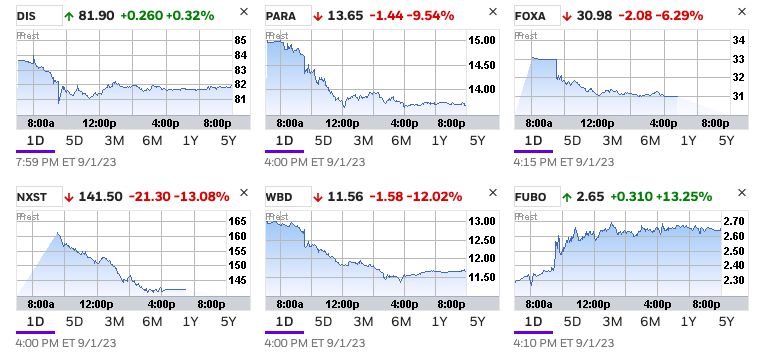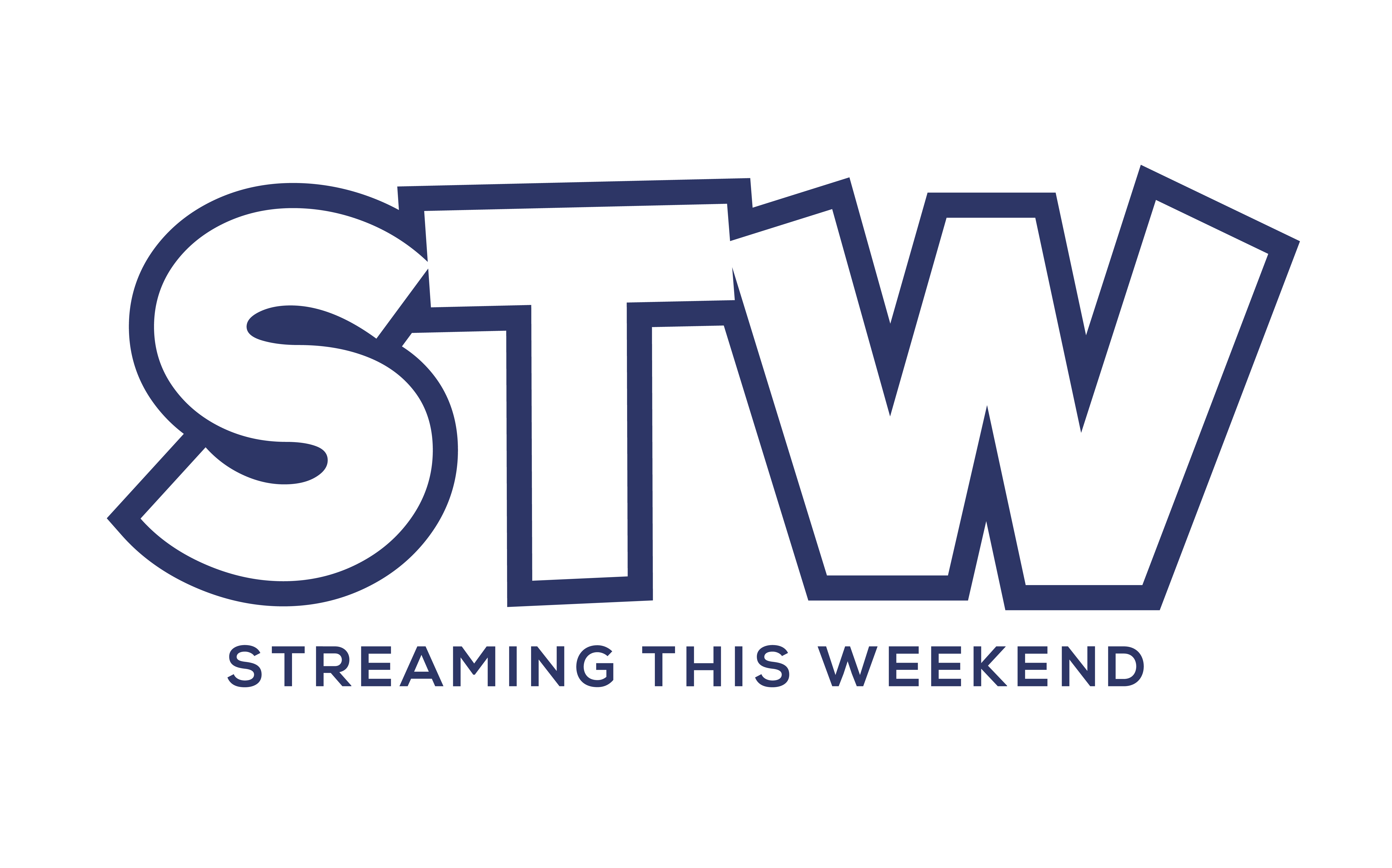With the exception of Netflix, which we’ve been bullish on for years (and purchased when it dipped to $230 this spring), there is a disaster in the streaming industry playing out in front of our very eyes. Though it may not last as long as most people think.
Last week, the Wall Street Journal highlighted how much of a reckoning the streaming industry faces right now when the author noted the difference in FuboTV Stock vs. every other competitor in the streaming business.

And if the chart above indicates what Wall Street thinks about the ever-competitive and crowded industry, there could be more carnage before we see any stabilization.
But we don’t need charts to show us just how crowded the streaming industry is right now; in our home, all streaming services have been canceled in favor of free YouTube programming.
Why? On top of the oversaturation of new IP, the strikes have prevented regular {proven) programming like Warner’s Real-Time with Bill Maher and The Daily Show from posting new content and that’s not to mention how unkind audiences have been to Hollywood overall this year (Flash, Black Adam, Indiana Jones, do we need to go on?).
But the fact is, companies like FuboTV and Tubi were destined to rule at some point no matter what the titans in streaming did. Though there are some real issues the streaming industry faces that are not of their own doing.
Why is the streaming industry suffering right now?
There are several issues the industry is facing, namely:
- The streaming wars are heating up. There are now a large number of streaming services vying for subscribers, and this is leading to higher prices and more content fragmentation.
- The cost of content is rising. The cost of producing high-quality content is increasing, which is putting pressure on streaming services’ margins.
- The rise of piracy. The ease of pirating content is a major challenge for the entertainment industry.
- The need for personalization. Consumers are demanding more personalized content experiences, which is putting pressure on streaming services to invest in AI and machine learning technologies.
- The live-streaming industry. The live-streaming industry on platforms like Twitch and Kick make up billions of minutes viewed, chipping away at the traditional streaming industry’s premium content viewing time.
Does this mean now is a good time to buy shares in companies like FuboTV?
While we don’t expect companies like Fubo to skyrocket overnight (hardly), the $2.50 stock should sustain its current momentum, at least for the next 12 months.
The entertainment industry is still facing substantial barriers to its 2021 COVID-era peak, and stocks like Disney and Warner are expected to continue to get hammered by antsy day traders.
Still, the entertainment and streaming industry is growing. The global market for streaming video is expected to reach $223.9 billion by 2027. The industry is also evolving to meet the changing needs of consumers. For example, there is a growing demand for live streaming content, and for content that is tailored to specific interests.
Will the traditional media companies ever reach their 2021 glory? It’s anyone’s best guess. In any case, the downturn traditional entertainment companies have faced in recent months won’t last long; invest with caution, but expect a bounce sometime in the next 6 – 18 months that will see some shareholders reverse their misfortune as the strikes end and new universes find their stride (think House of the Dragon and Gunn’s new DCU).
Happy investing!
Note: No information in this article is intended to represent investment advice. The author of this article is a shareowner of Netflix, Warner, Disney, and FuboTV.

